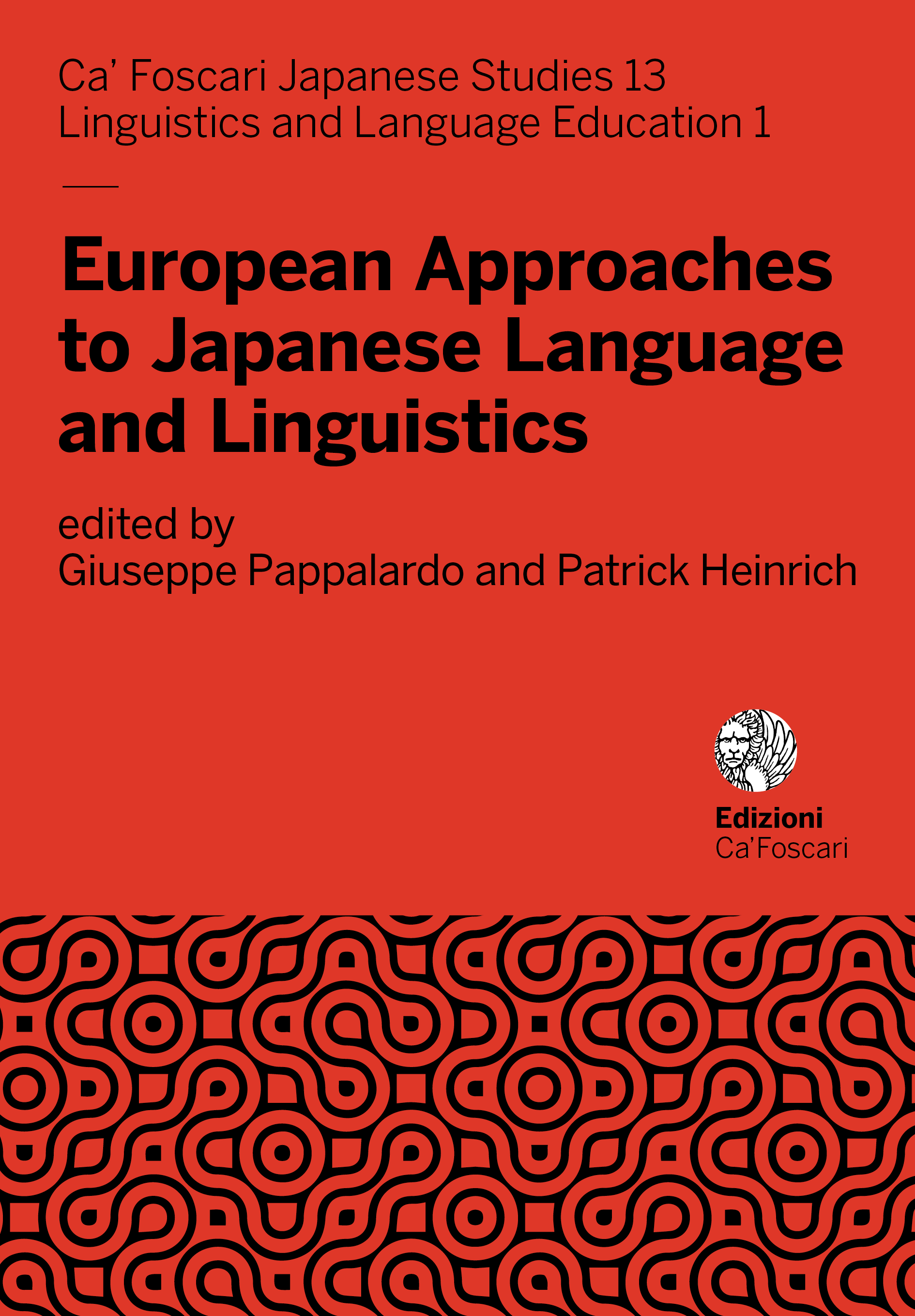- search 263 views
- file_download 13 download
- keyboard_capslock metadata
-
mark_email_readIscriviti alla newsletter
L’esprit de celui qui parle
Wilhelm von Humboldt on Japanese and its Speakers
abstract
Unbeknownst to most, Humboldt studied also Japanese in order to better grasp universal aspects of language. Humboldt’s interest in Japanese is based on his teleological view of language. According to Humboldt, language is the expression of a nation’s worldview and is, over time, subject to development and refinement. Japanese served Humboldt as an example to step back in time, so to speak, and he attempts to gain new insights into the origin of language by studying selected aspects of the Japanese language. While deeply original in his analysis, Humboldt falls victim to the Eurocentric bias of his approach. He uncritically perceives European languages as a yardstick to assess and interpret non-European languages.
Keywords: Late Middle Japanese • Adjectives • Personal pronouns • Worldview • Kokugaku philology • Linguistic relativity





